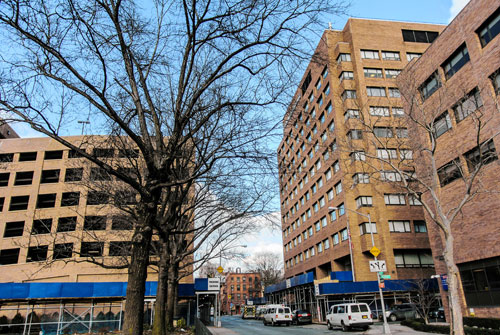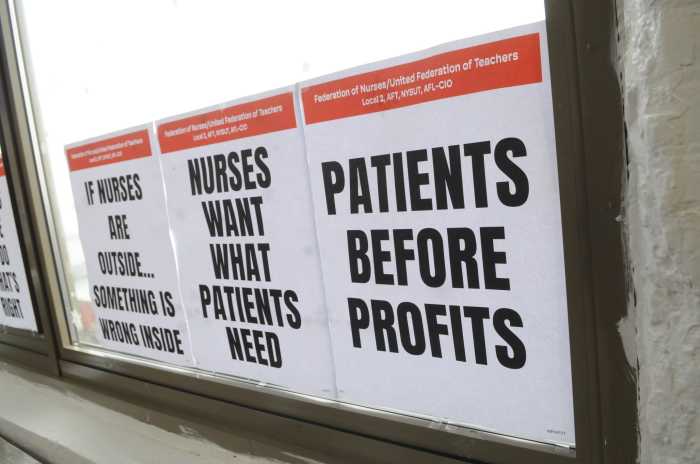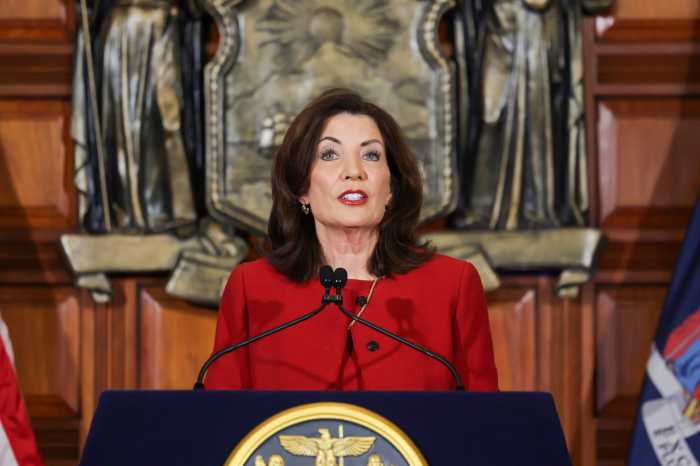The state and anti-Long-Island-College-Hospital-closure activists have reached a new legal agreement after the advocates say the state tried to rig the hospital redevelopment bidding process.
Officials tried to mislead appointed experts who are supposed to score each of the nine plans without conferring with anyone, according to the community groups who sued the state to halt the closure of the 156-year-old Cobble Hill institution. Lawyers for the activists threatened to sue again when they got wind of the alleged jury tampering, in which state officials allegedly told the evaluators falsehoods about the viability of some plans that call for full-service hospitals, which the activists want to be picked.
“Guidance provided by [the State University of New York] and [the Department of Health] to the [evaluation committee] that would result in lower scores to full-service hospitals, if true, may been seen as an effort to undercut the framework of our settlement, which is to issue a new [Request for Proposals] with the aim of finding a full-service hospital,” said lawyer Jim Walden, who represents six community groups, in a March 26 letter to state lawyers.
Walden claimed that state reps gave evaluators bogus information during a March 24 phone call, impugning some full-service plans on the basis that it would take 163 days for companies who do not have hospital operating licenses to obtain them, but not mentioning a law that says the state could award a temporary license to whomever takes over the medical facility. The lawyers got wind of the call from an evaluator on the committee who does not represent the six community groups, according to an anti-closure advocate who would not divulge the identity of the mole.
“SUNY should stop trying to manipulate the outcome and should let LICH be a hospital,” said Cobble Hill Association member Jeff Strabone. “Their hospital-killing zeal boggles the mind.”
A state attorney vehemently denied the claims, saying that the evaluators were not instructed to deviate from the rules and that the state expected the committee members to award higher scores to plans that include a full-service hospital.
“The bottom line is that the evaluators were free to evaluate in a manner that they individually deemed appropriate and without interference,” state lawyer Frank Carone wrote in a response to Walden.
An additional stipulation to the latest settlement signed by Carone and Walden states that members of the committee should disregard any information conveyed to them, or information they read in the media, about the regulatory process for approval of a hospital operator. The stipulation has yet to be approved by Brooklyn Supreme Court Judge Johnny Lee Baynes, who is overseeing the lawsuit.
The committee, which will hand in its final scores on March 31, is charged with evaluating the nine plans based on a point system that weighs medical services as two-thirds of the score and assesses the rest in terms of the amount of cash that the proposer is willing to put up. A group including Councilman Carlos Menchaca (D–Red Hook) and reps from the nurses union and community groups that sued the state to halt the hospital closure have less than half the say in scoring the medical category and none in scoring the financials.
The state does not stand to gain huge amounts of cash from trying to kill redevelopment proposals that include full-service hospitals because of a $250-million cap on how much it could bag for the prime real estate the hospital sits on, which experts value at as much as $500 million. A plan by a group called Brooklyn Health Partners would pay the state $250 million and keep the hospital a hospital, while a proposal from the Peebles Corporation, a developer, would pay the same amount, plus $10 million to a non-profit dedicated to improving healthcare in the borough, but turn the hospital into luxury apartments. Developer Fortis Property Group also wants to dismantle the hospital and is offering up just $240 million, the fourth-highest pledge, but has long been considered a favorite of the state, in part because a company founder and his uncle, who does not work for the company, donated $17,500 to Gov. Cuomo, who controls the State University of New York.


























